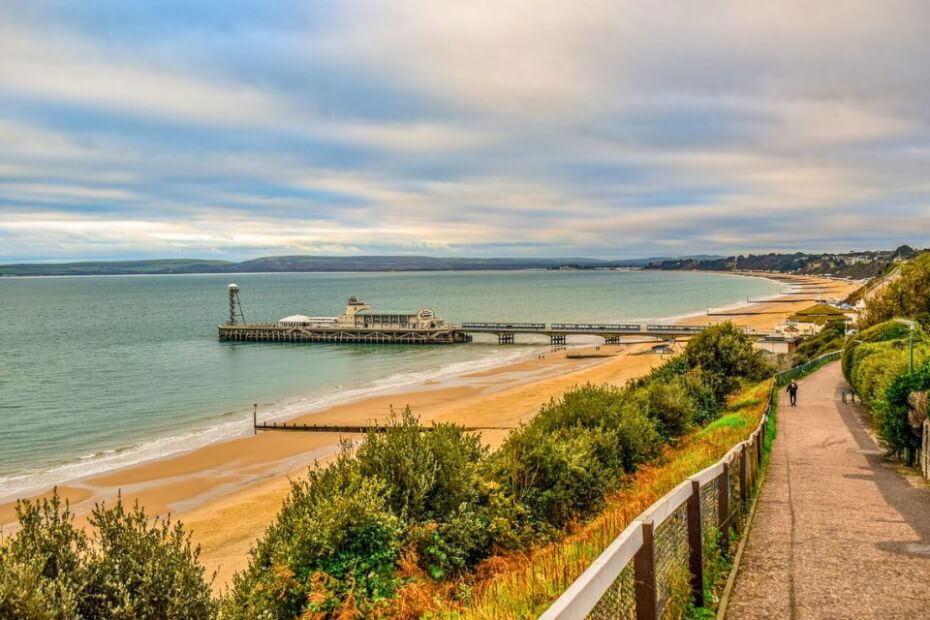
Travelers to the coastal towns of Dorset, England, do not yet have to pay tourist taxes.
The plans of Bournemouth, Christchurch, and Poole (BCP) towns to impose a tourist tax on visitors have been put on hold.
BCP had planned to charge tourists an additional £2 per room per night beginning 1 July.
Hoteliers in the three coastal towns approved the visitor levy through a ballot last May 2024.
However, 42 hotels in the area have appealed to the local government over how the ballot was conducted, per a BBC report.
The levy was voted in by the narrowest of margins of just one vote, and the Secretary of State is now considering the decision.
The Accommodation Business Improvement District (ABID) announced that it would delay charging the tourist tax until the autumn while awaiting the appeal.
BCP’s planned tourist tax
The tourist tax on Dorset coastal towns was designed to protect, strengthen, and grow the local economy, not hinder tourism.
The aim was to raise funds and was expected to generate around £12 million over five years.
The funds would support local events, maintenance of tourist attractions, and other community services.
It was reserved for popular events like the Bournemouth Air Festival and Poole Christmas Maritime, which draw thousands of visitors yearly.
Without additional funding, these events risked cancellation due to budget cuts.
The tourist tax will also be an additional revenue source for maintaining local facilities and improving the overall visitor experience.
Rosie Radwell, chair of the ABID board, emphasized then the potential benefits of the tax.
“We are excited about the future and have already started to plan projects and events to enhance tourism in the area,” she said.
Opposition to BCP tourist tax
Some local hospitality businesses strongly opposed the tourist tax proposal despite its potential benefits.
Many hoteliers argued that the tax would deter visitors, especially during off-peak seasons when occupancy rates are already low.
For instance, if a family of four stays in two rooms for a week, the BCP tourist tax would add up to an extra £33.60 to their vacation.
The tourist tax, higher UK visa fees, and the new UK Electronic Travel Authorization (ETA) may discourage tourists from visiting due to added costs.
This sentiment was echoed by several other business owners, who feared the tax would harm the local economy more than it would help.
Emma Russell of Leisureplex Hotels felt BCP’s tourist tax scheme was “rushed” and wanted to devise a more practical scheme.
She backed the appeal and told the BBC the levy was “disproportionate” as only 75 target hotels would participate.
“We are fundamentally against it. We should have been given a vote,” Russel told The Daily Express.
She added that the tax could cost her business between £50,000 and £60,000 a year.
BCP ballot vote controversy
Russell also stated that they did not receive the ballot notice or the voting papers.
A spokesperson for the appealed BCP hotels stated that 13 were denied their vote, and ten more were not included.
“If any one of these hotels had they been able to vote, the levy simply wouldn’t have been voted in,” the spokesperson said.
There were also a “significant number of mistakes” due to the failure to follow local authorities’ guidance during the process.
ABID Chair Radwell told the BBC she remains “confident in the integrity of the ballot.”
“This process has been challenging due to the diverse range of hotels in the area, and finding a ‘one size fits all’ solution has been complex,” she added.
Radwell said they are “actively listening to accommodation providers and considering their feedback all the time.”
BCP Council chief executive Graham Farrant echoed Radwell’s statement.
“We are confident the ballot process has been carried out fairly and in line with legal regulations,” he said.
Legalities of UK tourist taxes
According to UK law, local councils do not have the authority to impose such taxes directly.
Instead, they must form an ABID, and a majority of local accommodation providers must vote in favor of the tax.
A similar “Visitor Charge” was successfully implemented in Manchester City, generating £2.8 million in its first year.
Scotland had just approved a Visitor Levy bill allowing towns to tax tourists as early as 2026.
Before Scottish towns can do so, Scottish councils must consult extensively with communities, businesses, and tourism organizations.
Other cities like Cambridge and towns like Cornwall and Devon plan to launch a tourist tax.

